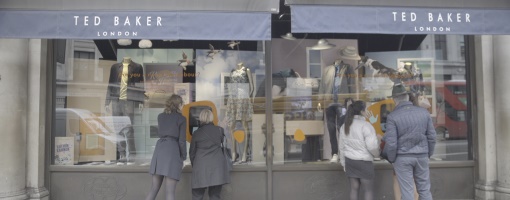The war in Ukraine could raise the risk for a worldwide recession, according to the chief global economist at Deloitte.
At the World Retail Congress in Rome, Ira Kalish told guests that the conflict has thrown a “massive monkey wrench” into what was a gradually improving post-pandemic picture.
“A lot people dropped out of the workforce for a number of reasons during the pandemic,” said Kalish. “A lot of older workers decided to retire, a lot of parents decided to stay home and look after their families and some people decided to remain in education.
“In certain sectors such as retail people lost their jobs when shops closed and they didn’t have the skills to be part of the shift online.
“If we are going to see a much longer period of inflation it is likely to mean that this feeds through into higher wage demands.”
The economist explained that prior to Russia’s invasion, there were signs that the major economies of Europe and the US were starting to “emerge from the pressures of coronavirus”.
However, he said, the outbreak of war has led to a sharp drop in in exports of food and key commodities from Russian and Ukraine, particularly energy and precious metals used in electronics.
He pointed out that supply chains have also suffered a “fresh wave of disruption” with some freight ships in the Baltics hit by missiles, alongside fresh Covid outbreaks in China.
Kalish explained this has pushed up the cost of raw materials, which was already feeding through to higher inflation. He warned that this pattern is now likely to be much more prolonged.
He told the conference that the backdrop presented the world’s major banks, such the the US Federal Reserve and the European Central Bank with a “major challenge”.
“They have to strike a really delicate balance between controlling inflation and not adding to what is already a much higher risk of recession in the major economies of the US, Europe and North America,” he said.
Latest News
-
Asos launches four-tier loyalty programme for UK customers following successful trial
-
Mango launches genAI fashion assistant
-
BestBuy ‘appoints new chief digital and tech officer’
-
Pandora rolls out new ERP system to support digital transformation
-
New Look implements AI-powered customer data cloud
-
Sports Emotion rolls out AI-driven merchandising platform
Supermicro and NVIDIA’s AI Solution for Retailers
To find out more: click here
Poundland significantly reduces antisocial behaviour, aggression and shoplifting with Motorola Solutions VT100 body cameras
Retail should not be a high-risk occupation. As a company, we are focused on listening to our colleagues and customers to help them with the issues they are facing in-store and so far, the feedback on our body cameras has been excellent. They act as a great visual deterrent, help to de-escalate situations and overall, this project has significantly aided our goal to make the retail environment safer.
For further information on Motorola Solutions’ retail security products, including body cameras, click here.
For further information on Motorola Solutions’ retail security products, including body cameras, click here.
© 2024 Perspective Publishing Privacy & Cookies










Recent Stories